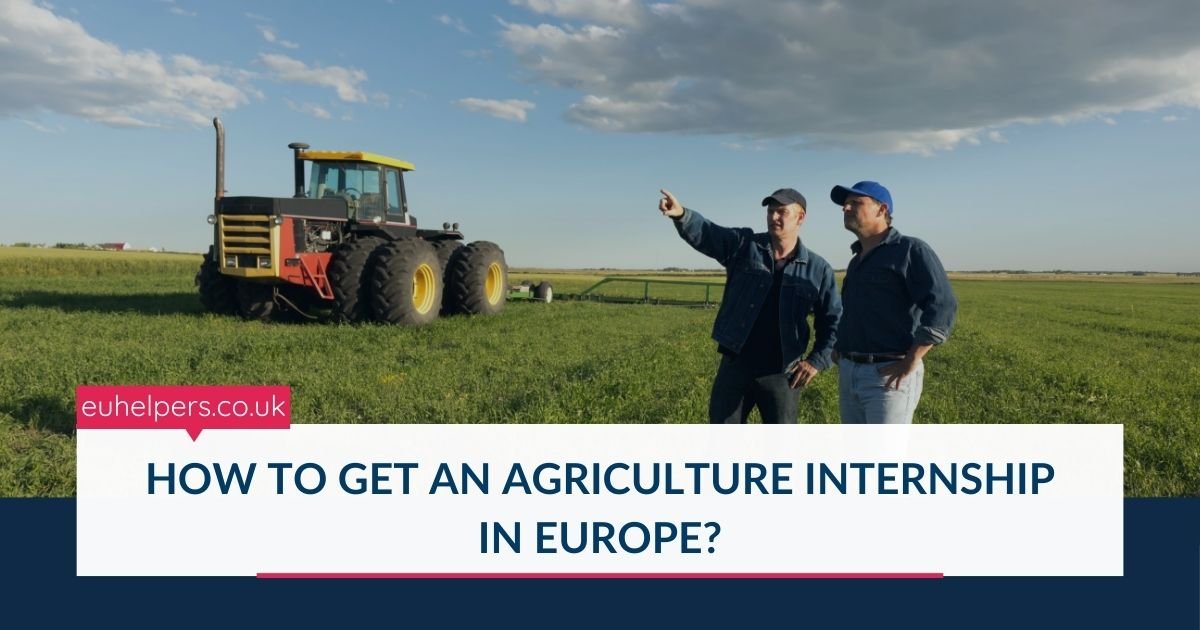An agriculture internship in Europe can be a valuable stepping stone toward an international career in farming, agribusiness, or agricultural technology. To succeed, you’ll need a well-prepared application, strong networking, and an understanding of visa and language requirements. Below is a step-by-step guide to help you secure the right opportunity.
1️⃣ Identify Your Interests
Start by clarifying which areas of agriculture appeal to you most. Options include:
-
Crop production (planting, harvesting, sustainable farming practices)
-
Animal science (livestock, poultry, or dairy management)
-
Agricultural technology (greenhouse systems, precision farming, food processing)
Knowing your focus will help you target the right internships.
2️⃣ Research Opportunities
Explore various platforms that regularly list agricultural internships in Europe:
-
Online job boards such as LinkedIn, Indeed, and Glassdoor
-
Specialized internship websites in agriculture and sustainability
-
University career centers and exchange programs
3️⃣ Network with Professionals
Networking is often the key to finding hidden opportunities. Consider:
-
Connecting with agricultural professionals on LinkedIn
-
Attending industry events, workshops, or job fairs
-
Reaching out to professors, mentors, or alumni for referrals
4️⃣ Prepare a Strong Application
-
Resume/CV: Emphasize relevant skills, such as farming techniques, knowledge of agricultural tools, or experience with sustainability projects.
-
Cover Letter: Clearly explain your motivation for applying, your career goals, and how your skills align with the host organization’s objectives.
5️⃣ Understand Visa Requirements
If you are not an EU/EEA citizen, you’ll likely need a work or internship visa. Each country has specific rules, so check the immigration guidelines for your target destination early in the process.
6️⃣ Consider Language Skills
While many internships accept English speakers, some roles—especially in rural or small-town settings—may require basic proficiency in the local language (e.g., Spanish, German, or French).
7️⃣ Apply Early
Paid and high-quality internships in Europe are highly competitive. Begin your search 6–12 months before your planned start date to improve your chances of securing a placement.
8️⃣ Prepare for Departure
Once accepted:
-
Arrange travel and accommodation well in advance
-
Review health insurance and visa requirements
-
Familiarize yourself with local culture, customs, and workplace practices
Securing an agriculture internship in Europe requires preparation, persistence, and proactive networking. By tailoring your application, researching opportunities, and ensuring you meet visa and language requirements, you’ll not only gain valuable international experience but also lay the foundation for a future career in global agriculture.

